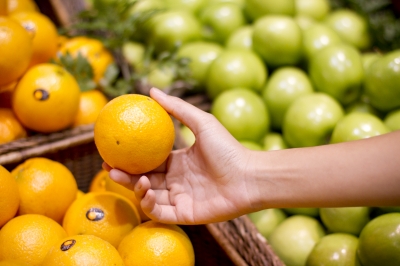 The Bureau of Customs (BOC) will put up for auction on August 28 a total of 385 twenty-foot-equivalent units (TEUs) of smuggled rice shipments seized at the Manila International Container Port (MICP).
The Bureau of Customs (BOC) will put up for auction on August 28 a total of 385 twenty-foot-equivalent units (TEUs) of smuggled rice shipments seized at the Manila International Container Port (MICP).
The illegal shipments, which arrived October and November last year, were consigned to Bold Bidder Marketing and Jade Brothers Farm and Livestock, Inc.
It may be recalled that Bold Bidder had been subject to litigation for attempting to get the shipment released by voluntarily giving it up for seizure by the government, hoping the district collector or customs commissioner would agree to settle and allow the consignee to simply pay the additional duties, taxes and penalties.
But BOC stood pat on its “no permit, no entry” policy.
Of the total, 315 TEUs belonged to Bold Bidder and 70 TEUs consigned to Jade Brothers Farm and Livestock.
BOC will also auction off 23 forty-foot-equivalent units (FEUs), or around 670,000 kilograms, of illegally imported garlic on August 26.
The garlic shipments, which arrived June 13 and June 24 of this year at MICP, came from four different consignees.
BOC also seized 10 FEUs of illegally imported oranges and apples from South Africa that it said posed risks to public health and the local agriculture industry.
Of the 10 that arrived at MICP from June 30 to July 21, nine boxes were filled with oranges and one with apples.
The seized shipments, weighing about 288,000 kilograms and worth an estimated P3.7 million, were placed under alert order by BOC’s Intelligence Group on the basis of derogatory information.
The consignees, identified as EBD Fruits Commercial, Gwearjam Imports, GWSI Fruits Commercial, Bounty Source Trading, and Tresmarios Enterprises, failed to submit the required a Sanitary and Phyto-Sanitary (SPS) Import Clearance or Permit from the Bureau of Plant Industry.
The Bureau of Plant Industry and the Department of Agriculture have earlier advised BOC not to release any shipment of agricultural products from Africa without prior clearance.
Four other shipments of contraband oranges from South Africa that arrived at the Port of Manila and Port of Davao have been placed under alert orders by the agency, as investigations against the importers and customs brokers are ongoing. These shipments are subject to seizure and the consignees’ ownership for forfeiture.
The government has raised precautions against the entry of all cargo from Africa as a preventive measure against a local outbreak of the Ebola virus following a global alert issued by the World Health Organization.
So far though, detected modes of transmission of the deadly virus, which has claimed over 1,500 lives in West Africa, have been mainly through the organs, blood, and other bodily fluids of infected animals, the bodily fluids and stools of infected persons, objects such as contaminated needles and soiled linen used by patients, and the bodies of deceased persons.
Image courtesy of akeeris at FreeDigitalPhotos.net





